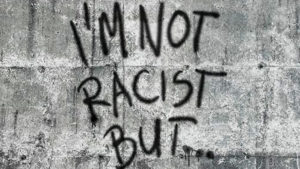Call for changes to media regulations relating to race
 New research has called for the strengthening of media regulations in relation to race-based reporting to prevent discrimination and the perpetuation of negative stereotypes.
New research has called for the strengthening of media regulations in relation to race-based reporting to prevent discrimination and the perpetuation of negative stereotypes.
The research, titled ‘Who Watches the Media’ and conducted by not-for-profit organisation All Together Now and the University of Technology Sydney, uncovered 62 opinion based reports that potentially breached at least one of the media Codes of Conduct because of racism.
All Together Now Managing Director Priscilla Brice, said that among the publications tracked during this six-month study, negative portrayals of race were most frequently published on News Corp’s online newspapers Daily Telegraph, The Australian and Herald-Sun.”
The research conducted between January and July 2017, found that Muslims were mentioned in more than half of the opinion pieces, and more than twice as many times as any other single group mentioned. Of these, 63 per cent of reports about Muslims were framed negatively.
“Anecdotally, we know that negative portrayals of Muslims in the media is having adverse effects in communities, with Muslim families (and particularly women wearing hijab or other head coverings) being victimised,” Ms Brice said.
The study focused on opinion-based articles published by the four most-watched current affairs TV programs, and the four most-read newspapers nationally, as determined by ratings agencies.
The report recommended that the regulations covering media conduct and journalistic standards should be strengthened so that definitions of racism include both overt and covert forms.
“Media regulations that focus on racism generally cover overt forms of racism, but fail to cover subtle forms such as perpetuating negative stereotypes,” the report said.
“The common understanding of racism covers a range of behaviours that unfairly target people based on their race, nationality, cultural background and or religion. Given that the definition of racism changes over time to reflect social norms, codes of conduct need to be updated regularly to ensure definitions are current and relevant.”
Ms Brice said that currently, under some media regulations, audiences have only 30 days in which to make a complaint.
“The research report recommends that this deadline be removed to allow audiences to make complaints about racist media content at any time, and for the definition of racism be broadened in the Codes of Conduct to include covert forms of racism,” Ms Brice said.
“It is unclear whether some racist opinion-based reports might constitute a breach, as the regulators take into consideration the tone and context used to discuss race.”
The report also recommended that news agencies supported journalists to discuss race sensitively.
“They can do this by providing training, recruiting more journalists of colour, and ensuring that their editorial policies are racially aware,” it said.
The report also called for the response times by the regulators to be improved so that “reports deemed racist are quickly rectified”.
Also, it said news agencies should hire more journalists from culturally and linguistically diverse (CALD) backgrounds and ensure they received mentoring if requested to encourage greater cultural diversity among media workers and content.
The report said media codes of conduct were generally voluntary and often did not result in any retractions, penalties or changes being made.
“This is problematic, given the impact that negative race-related reports have on the ways in which people view targeted minority groups. Yet they provide a means by which audiences can make a complaint, and for this reason it is recommended that the codes of conduct are strengthened to better facilitate the complaints process,” the report said.
Laurie Nowell
AMES Australia Senior Journalist












